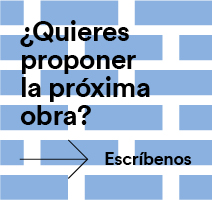- "Have you thought of your future?"
- "No, for I have been afraid to think of any future."
This week we count with the partnership of Andrés Lucas Jaramillo, graduate in Philosophy by School of Philosophy and Letters. He is currently studying the Master's Degree in Government and Organizational Culture at the University of Navarra. In this new entrance he comments on Great Expectations, by Charles Dickens.
I still agreement what my first day of college classes was like: getting up early, getting dressed up to make a good impression, trying to arrive 15 minutes early so as not to get lost when looking for classroom, sitting in a good place, not stopping to look at the clock to see when the professor would arrive... Those were perhaps the first sensations experienced by the protagonist of Great Expectations when he moved to London to start his programs of study.
Great Expectations is one of the major works of English author Charles Dickens. It was published in parts between 1860 and 1861. The play iconically begins in one of the marshy villages (the marshes) in the county of Kent. In a church graveyard, the protagonist Phillip Pirrip "Pip" has an unfortunate meeting with a fugitive. This meeting will be with him all his life, as the story progresses.
After meeting a wealthy girl (Stella), Pip feels a sort of inferiority complex for his lack of Education and "simplicity", and makes it his purpose mission to make a name for himself in life in order to impress her. After a few months, and without prior notice, Pip receives the statement that an anonymous benefactor has decided to pay him all the programs of study to turn him into a gentleman. After saying goodbye to his family, Pip packs his belongings and sets off on his journey to London to make those great expectations come true.
Although the novel deals with themes typical of the Victorian era such as the customs of the aristocracy, love affairs, legal disputes or the life of workers and artisans during the birth of industries, it also deals with deep themes such as freedom, friendship and unconditional love.
I have always believed that there are some literary works that fit you like a glove at certain moments in your life. Great expectations was one of those works for me, because I started reading it when I had just finished the Degree at Philosophy and was about to start the Master's Degree of Government and Culture of Organizations at the University of Navarra. Certainly, those were times of great uncertainty, but fortunately I managed to stick to my purpose and overcome any obstacle.
The main lesson of Great expectations is to find one's purpose in life, and know how to correct it if necessary (as you can see happened to Pip in the novel). Hint: a good purpose will always be aligned with the people you love most in the world and with your deepest values. College is precisely a time to discover and deepen that purpose, through all that it has to offer both professionally and culturally, and, above all, in the relationships one forges during this period.
In conclusion, one has to be aware of the great privilege of living the university stage, and take advantage of that time to be clear about the purpose that one wants to achieve in his or her life. However, it has already been seen that this purpose has to take into account the relationships that have forged, forge and will forge our identity. In this sense, the task of self-knowledge that one has is enormous; however, one is never alone in that journey. The people one encounters along the way make this adventure beautiful and worth living.
If you liked the article, you might be interested in one of our Degrees!











